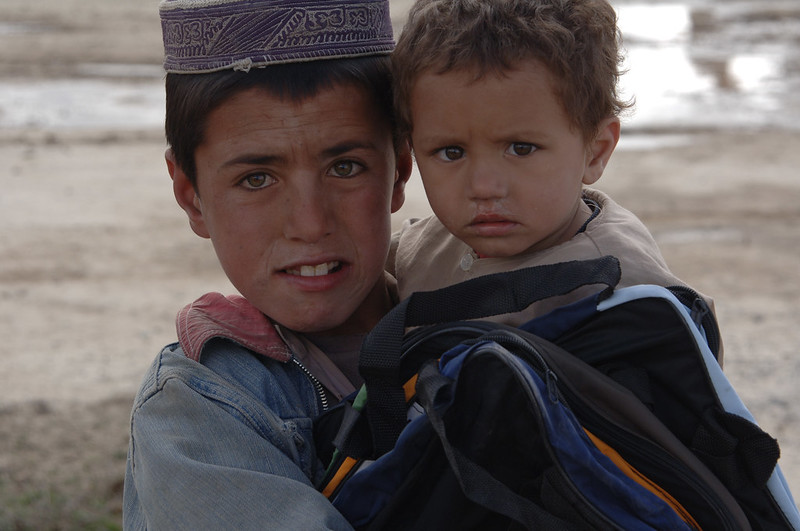A New Initiative to Combat Poverty in Afghanistan

Afghanistan is on the brink of disaster. Immediately after the United States’ exit from Afghanistan in August 2021, the Taliban assumed full power, seizing the nation’s capital, Kabul. Just months later, the United Nations Development Programme (UNDP) estimated that Afghanistan’s $20 billion economy could shrink by 20%, plunging the nation further into poverty. However, the international community is not turning a blind eye. Instead, UNDP has launched a new initiative to combat poverty in Afghanistan.
UNDP Launches ABADEI
In October 2021, UNDP launched the Area-based Approach for Development Emergency Initiatives, also known as ABADEI. ABADEI is a new initiative to combat poverty in Afghanistan and is a part of a broad effort to “operationalize a basic human needs approach within the complex and fast-evolving context of Afghanistan.” UNDP explains the ABADEI strategy best, stating that ABADEI “provides an articulation of investments in basic services, livelihoods and community resilience that complement humanitarian efforts by helping households, communities and the private sector cope with the adverse effects of the crisis.”
Specifically, ABDEI has the backing of a Special Trust Fund for Afghanistan. UNDP created this special trust fund in October 2021 to provide cash assistance to Afghans in dire need, independent of a third party. Germany was the first country to financially commit to the trust fund, pledging nearly $60 million. The trust fund has since grown to more than $170 million in December 2021.
ABADEI, then, is the strategy that directs the flow of the money. Under the ABADEI initiative, program coordinators will implant funds into the community in four main ways.
4 Main Funding Channels
- Allotting grants to microbusinesses. A 2019 OECD report on private sector development and entrepreneurship in Afghanistan estimates that entrepreneurs and small and medium enterprises (SMEs) account for nearly 99% of businesses in the country. The report also states that “with foreign assistance declining and the country still struggling to attract private investment from abroad, Afghan entrepreneurs and SMEs will have to be the engines for much of the needed development.” This first goal particularly seeks to assist women-owned businesses as women face disproportionate impacts of poverty during times of crisis. Under ABADEI, program coordinators will distribute cash in local currency and assess needs with the help of local community leaders. The U.N. hopes that the direct injection of cash will help keep local economies from collapsing.
- Cash-for-work projects. The second goal of the initiative is to provide “short-term income to the unemployed.” USAID data from November 2021 indicates that nearly 40% of Afghans endure poverty. In 2020, before the Taliban took over, unemployment stood at slightly less than 12%. Although there is no official number for the rising unemployment rate, reports indicate that people are resorting to selling their own possessions to survive.
- Financial support to at-risk populations. The director of the U.N. Food and Agriculture Organization, Qu Dongyu, states that women, young children and the elderly are at risk of starvation during the winter in Afghanistan. To mitigate these impacts, ABADEI seeks to provide a “temporary basic income” to the at risk-populations of Afghanistan.
- Strengthening natural disaster resilience. Afghanistan is prone to natural disasters including flooding, earthquakes, landslides and droughts. ABADEI will help Afghanistan mitigate such disasters by funding the “rehabilitation of canals” and other “flood protection” strategies to safeguard farming land from the destruction of floods. By preemptively protecting farmland, ABADEI aims to reduce the risk of increasing food insecurity in the nation.
Looking Ahead
Achim Steiner, a UNDP administrator, said at a press conference that “ABADEI is a concrete contribution to the efforts of the United Nations to protect the hard-won development gains achieved over the past 20 years and prevent further deterioration of Afghanistan’s fragile local economy.” Though the future of Afghanistan is unclear and the country faces numerous challenges, ABADEI stands as a new initiative to combat poverty in Afghanistan, marking an integral first step in the international community’s efforts to safeguard the well-being of Afghans after the Taliban takeover.
– Richard Vieira
Photo: Flickr
